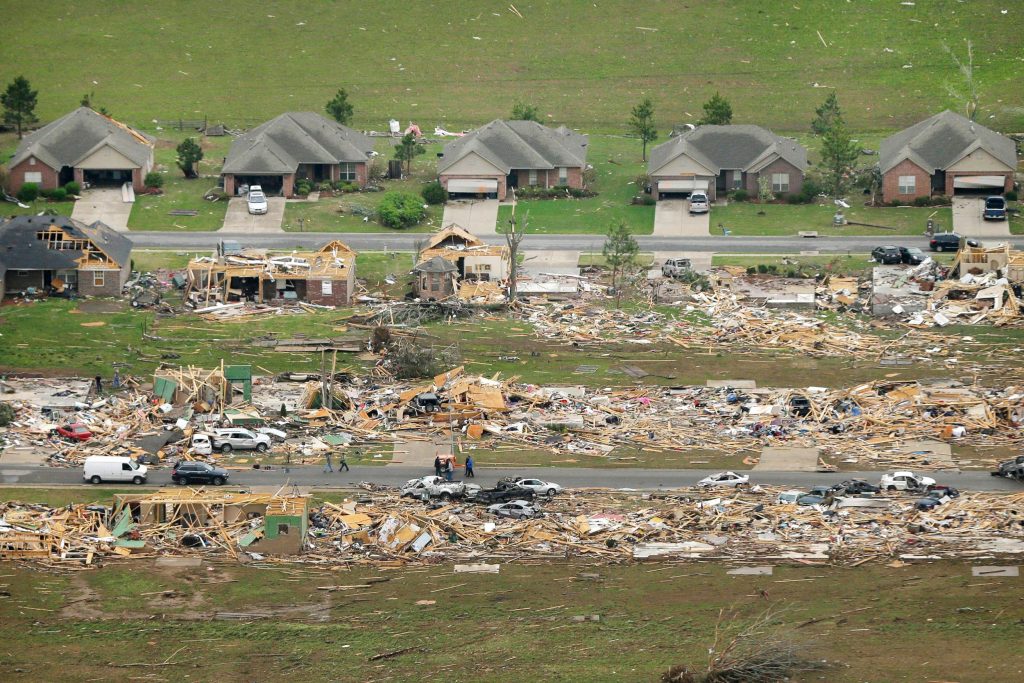Mayflower’s Decade of Resilience in the Face of Three Disasters
By Adena J. White
midst the chaos and challenges of a crisis lies an opportunity for growth. Over the course of a decade, the city of Mayflower was confronted
with three catastrophes: an oil pipeline spill in March 2013, a devastating tornado in April 2014, and a record-breaking flood in June 2019.
Through these trials, the community has proven that even in the face of the most unpredictable circumstances, preparation, unity and a commitment to learning can pave the way for a brighter, more resilient future.
Mark Harrell’s property flooded three times in five years, but the flood along the Arkansas River in the spring of 2019 was the first time water entered the house. His previous experience with flooding made him take the warnings from the U.S. Army Corps of Engineers seriously, despite receiving the news on a sunny, spring day.
Harrell rented two storage units and began removing furniture from his home, pulling carpet and uninstalling cabinet doors. As the water rose, he and his wife stayed on higher ground in a camper trailer across the road from his house.

“All we could do was watch the water come in.”
As the 12 inches of floodwater crested and began to recede, the six-month repair and drying process began. Friends and family members – some of whom worked in construction and restoration – helped remove what remained in the Harrells’ home. Volunteer groups from neighboring communities and from outside the state helped remove debris. Harrell said that while natural disasters can’t be prevented, there are precautions residents can take.
“If you live in a floodplain, have adequate flood insurance, know your surroundings as far as water elevation levels and listen to the experts,” he said.
In contrast to the gradual impact of a flood, tornadoes are unpredictable, and the damage from the storm is instantaneous. In 2014, Dawn Bowie and her family lost everything in the tornado that struck Mayflower.
“We lost all of our pictures, we lost all of our furniture, we lost — everything,” she said, “There was nothing to save.”
Bowie said the support from friends and neighbors was incredible as she and her family began to piece their lives back together over the next two years.
“The community really showed up and tried to help, so that was touching,” she said. “I knew people would help, but I wasn’t expecting to that extent.”
Randy Holland was mayor of Mayflower for 16 years and can attest to the outpouring of support from neighbors, volunteers and relief organizations when disaster strikes. Although every crisis is different, Holland believes mayors and city leaders would benefit from having opportunities to learn from other local government officials who have been through major catastrophes.
“It’s important for mayors to learn from each other about how to handle these disasters before they happen – from how to establish a command center to knowing what resources are available,” Holland said. “Experience is the greatest teacher, unfortunately. Each disaster gave me experience on how to handle the next one.”
To help Arkansans better prepare for tornadoes in particular, Holland would like to see the reinstatement of the Arkansas Division of Emergency Management’s Shelter Rebate Program. The program, which ended in 2016, provided a rebate to homeowners who installed a tornado shelter or safe room at their residence.
“We’re right in tornado alley, and we’re going to have more tornadoes. There needs to be money put into that rebate program,” he said. “The more ways we can help people be prepared, the more lives we can save.”
